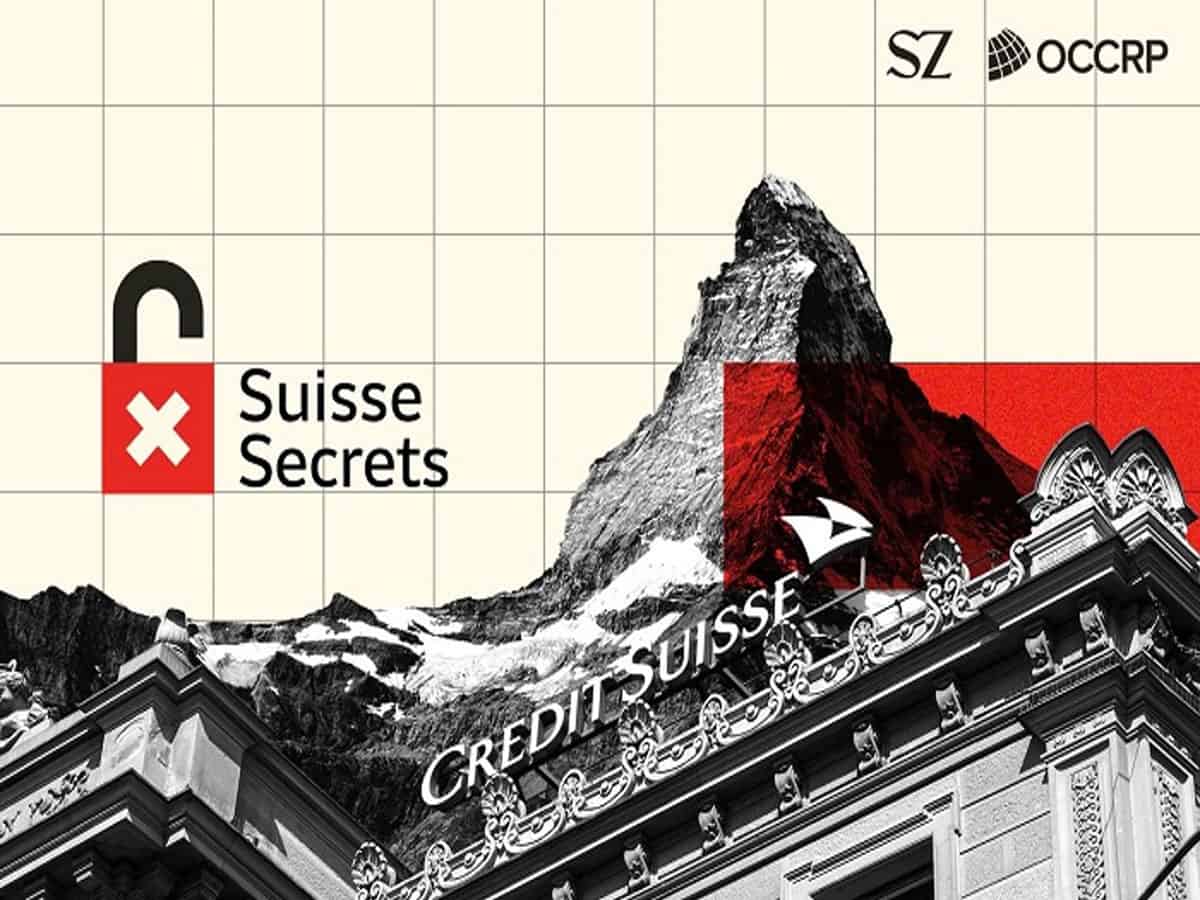
New Delhi: The ‘Suisse Secrets’ project investigates bank account information leaked from Credit Suisse, Switzerland’s second-largest lender. The leak included more than 18,000 accounts that held in excess of $100 billion at their peaks. It is the only known leak of a major Swiss banks client data to journalists.
Switzerland is a well-known destination for money from all over the world, in part because of its banking secrecy laws. There is nothing inherently wrong with having a Swiss bank account. But banks are supposed to avoid clients who earned money illegally or were involved in crimes – and reporters identified dozens of corrupt government officials, criminals, and alleged human rights abusers among Credit Suisse account holders, the Organised Crime and Corruption Reporting Project (OCCRP) said in a report.
Despite their notoriety – which, in some cases, would have been obvious from a quick Google search – Credit Suisse maintained relationships with some of these clients for years, though it is possible that some accounts were ordered frozen by law enforcement.
The Suisse Secrets project investigates these account holders, whose exploitation of Swiss banking secrecy is a prime example of how the international financial industry enables theft and corruption
The Suisse Secrets data was provided to the German newspaper Suddeutsche Zeitung by an anonymous source more than a year ago. Nothing is known about the source’s identity.
The source, however, did provide a statement explaining his or her motivations.
It reads, in part: “I believe that Swiss banking secrecy laws are immoral. The pretext of protecting financial privacy is merely a fig leaf covering the shameful role of Swiss banks as collaborators of tax evaders. � This situation enables corruption and starves developing countries of much-needed tax revenue.
“I want to emphasize the fact that the responsibility for this state of affairs does not lie with Swiss banks but rather with the Swiss legal system. Banks are simply being good capitalists by maximizing profits within the legal framework they operate in. Simply put, Swiss legislators are responsible for enabling financial crimes and – by virtue of their direct democracy – the Swiss people have the power to do something about it.”
Those cases that merited publication involved clients known to have been high-risk: politically connected people or those accused or convicted of serious crimes. OCCRP said dozens of Credit Suisse accounts belonged to prominent figures, alongside the scandals, criminal investigations, or high-profile political events they were involved in.
One example is Rodoljub Radulovic, a high-ranking member of one of Eastern Europe’s largest cocaine-smuggling cartels, led by the notorious Serbian drug lord Darko Saric. Radulovic was able to open a Credit Suisse account despite a long history of involvement in financial scandals in the US. He then used it to launder over 3 million euros’ worth of drug money, Serbian prosecutors say.
Another is Eduard Seidel, a former top executive in Nigeria for German telecommunications giant Siemens, whose accounts contained tens of millions of Swiss francs. Two of them remained open for almost a decade after allegations of his involvement in a major bribery scandal in Nigeria first broke.
Then there’s Muller Conrad Rautenbach, a mining magnate who has openly boasted of his willingness to bribe his way to the top, and was sanctioned by the US and EU. He opened high-value accounts at Credit Suisse even after the UN warned he was allegedly overseeing corrupt mining deals in the Democratic Republic of Congo.
The larger story that unites these cases is that of a major financial institution that allowed clients to stash away laundered or stolen assets. Nearly all of the stories rely on publicly available information, meaning that Credit Suisse’s due diligence department would have had access to it as well, the OCCRP said.
“Everyone should have some access to the banking system,” said Graham Barrow, a financial crime specialist.
“What you should not be able to do is use the banking system to introduce corruptly acquired wealth and legitimize it.”



